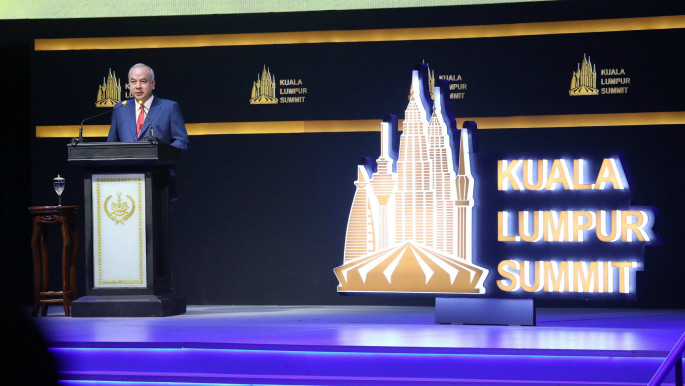Are billion dollar investments in India prompting Saudi Arabia's silence over Kashmir?
Since August last year, India has kept the disputed Kashmir Valley in a state of lockdown with no internet after doing away with the special status accorded to the region by the United Nations. Suggesting an emergency meeting be held by the OIC, Islamabad tried in vain with no result.
Being the largest GCC state, Saudi Arabia's willingness is essential for the OIC to make a move on Kashmir and hold a special meeting. Instead, the kingdom came up with various other options like holding a speaker's conference, a parliamentary forum or a joint session to discuss both the Palestine and Kashmir issues together. However, Islamabad felt that a separate meeting on Kashmir would create more of an impact.
While meeting on the sidelines of the UN General Assembly gathering in Washington last year, the leaders of Malaysia and Turkey suggested to Pakistan's PM Imran Khan that a mini-Islamic Summit be held in Kuala Lumpur in order to highlight Muslim crises like that in Kashmir.
But just before the event was held, Saudi Arabia started criticising the KL Summit, claiming that the OIC was the most suitable platform for discussing issues pertaining to the Muslim world.
 |
|
| Read also: Does Saudi Arabia feel threatened by the new Muslim alliance? |
After dissuading Khan from attending the summit at the last minute, the Saudi government sent Foreign Minister Prince Faisal bin Farhan to Islamabad to discuss a bigger role for the OIC in bringing up the Kashmir debate.
Having assured Khan that an emergency meeting for foreign ministers of OIC countries would be convened to discuss Kashmir, it seemed like Saudi Arabia was serious and the meeting would take place soon.
However, Pakistan delayed it for a while in order to dispel the general perception that it was a quid pro quo understanding.
Since then Riyadh has reverted to its original stance and it is reluctant to move on the matter now. On February 9, a meeting of OIC senior officials took place in Jeddah to prepare for the upcoming 47th Council of Foreign Ministers (CFM) in Niger this April.
But no indication has been given from Riyadh that Pakistan's request for an immediate CFM meeting on Kashmir will be accepted.
 |
No indication has been given from Riyadh that Pakistan's request for an immediate CFM meeting on Kashmir will be accepted |  |
Nevertheless, just a day before the meeting of senior OIC officials, the Saudi FM rang his counterpart in Islamabad to reiterate that the Kashmir cause could be advanced bilaterally from the Organisation's platform. This indicated that no special emergency meeting on Kashmir would be held before the annual CFM.
Moreover, this phone call came after the Pakistani PM gave a talk at a think-tank in Malaysia, feeling disappointed over the OIC dragging its feet on the Kashmir matter, referring to the lack of unity among Muslim states.
"The reason is that we have no voice and there is a total division amongst [us]. We can't even come together as a whole on the OIC meeting on Kashmir," Khan stated.
Constituting the second largest inter-governmental body after the United Nations, the OIC has 57-member countries. Sadly, the alliance could have played a more meaningful role in highlighting Muslim issues, especially as there are several ongoing humanitarian crises such as the Uighurs, Rohingya, Kashmiris or Palestinians.
Read also: Why Muslim countries are turning their back on China's repressed Uighurs
Having prepared a report on the humanitarian crisis in the Kashmir valley, the OIC's Independent Permanent Human Rights Commission has been more active, but the special CFM meeting is not likely to happen.
Stopping short of completely ignoring the situation in the Kashmir Valley since the Indian government completely scrapped its special status, Saudi Arabia has remained distant and disconnected.
What could be the reason of Saudi disinterest in the plight of Kashmiri Muslims, are their investments and business interests in India prompting this silence?
 |
Are their investments and business interests in India prompting this silence? |  |
Visiting India right after a business trip to Pakistan, the Crown Prince Mohammed bin Salman (also known as MbS) expanded non-oil trade with New Delhi suits and five agreements were signed last year. A strategic partnership council was also set up and MbS expressed hope that that the opportunities targeted in India will exceed $100 billion in value in the coming two years.
Notably, the trade agreements inked between Riyadh and Islamabad amounted to just $20 billion.
 |
| Read also: Mohammed bin Salman's waning influence |
Describing the proposed investments to be 'strategic milestones' between Riyadh and New Delhi, the Saudi envoy to India, Dr Saud bin Mohammed Al Satti said that, "Saudi Aramco's proposed partnership with Reliance Industries Limited reflected the strategic nature of the growing energy ties between both the countries."
Since nearly two decades, Indo-Saudi ties are on an upward trajectory with bilateral trade of $28 billion and a 2.7 million Indian diaspora settled in the kingdom.
Investing $100 billion in India in the petrochemicals, energy, refining, agriculture, minerals, mining and construction sectors, Saudi Arabia is looking towards the growth of its investments plus oil exports.
Not only that, the expansion of trade relations with India furthers the Saudi Vision 2030 and helps in diversifying the Saudi economy which has been too dependent on petroleum products.
 |
MbS expressed hope that that the opportunities targeted in India will exceed $100 billion in value in the coming two years |  |
At the same time, India's energy security is dependent on Saudi Arabian oil, as at least 17 percent of crude oil and 32 percent of LPG requirements are sourced from there.
Recently, Amin Nasser, the CEO of Aramco, has also disclosed that, "India is an investment priority" for their company and there are plans to set up a large refinery there, only delayed due to some land acquisition issues.
Before the strengthening of trade links with New Delhi, Riyadh usually supported Pakistan's stance on the Kashmir issue. As assessed by Khalid Rahman from the Islamabad-based Institute of Policy Studies, "There's been a shift in the body language of Saudi Arabia, the UAE and other Gulf countries in recent years."
Where Pakistan is concerned, resolving the Kashmir issue is an important objective of its foreign policy and this divergence with Saudi Arabia, one of its closest allies, remains a challenge.
Even in March 2019, India was invited to an OIC session as an observer, and this was a major diplomatic setback for Pakistan which had prevented India's inclusion since 1969.
Sabena Siddiqui is a foreign affairs journalist, lawyer and geopolitical analyst specialising in modern China, the Belt and Road Initiative, Middle East and South Asia.
Follow her on Twitter: @sabena_siddiqi





 Follow the Middle East's top stories in English at The New Arab on Google News
Follow the Middle East's top stories in English at The New Arab on Google News


